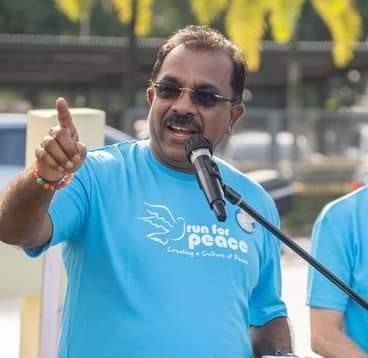SHAH ALAM, 23 April 2025 – Sentosa State Assemblyman, YB Gunaraj George, has proposed that the government consider the establishment of a Non-Islamic Religious Affairs Advisory Board at the national level to manage issues concerning non-Islamic places of worship and religious sensitivities in a more structured, systematic, and inclusive manner.
According to him, the creation of such a board would complement the roles of existing mechanisms at the state level, such as the Five Religions Committee (RIBI), which currently serves as a communication channel between religious communities and the government, resolves interfaith issues harmoniously, organises joint programmes, and provides policy advice on unity.
“Ideally, a national-level advisory board working closely with RIBI would not only strengthen enforcement efforts on matters concerning places of worship, but also help resolve long-standing issues faced by non-Islamic communities — including the use of terms that are misleading and offensive,” he said.
He referred to the usage of terms such as “illegal temple”, which he described as inaccurate both legally and culturally. “Many are unaware that numerous non-Islamic places of worship are in fact legally registered and possess complete documentation. However, when terms like ‘illegal temple’ are used purely based on the physical structure without considering historical context or actual legal status, they create unfair and negative perceptions towards the religion,” he stressed.
YB Gunaraj emphasised the need for an approach based on understanding and mutual respect in addressing issues surrounding places of worship and land zoning. The proposed Non-Islamic Religious Affairs Advisory Board could play an important role in:
- Coordinating the registration of non-Islamic places of worship;
- Mediating issues related to land and zoning;
- Providing guidelines and advisory services to religious organisations;
- Formulating more inclusive policies and frameworks to ensure justice for all religious communities.
“The use of terms such as ‘unregistered structure’ or ‘building without approval’ is more accurate, professional, and respectful of all sensitivities. However, we need a specialised institution with the expertise and authority to offer guidance and advice on these matters,” he added.
As a follow-up, YB Gunaraj also urged the Ministry of National Unity, particularly through the Interfaith Harmony Division (BKAPA), to further strengthen its role in unity education and advocacy.
